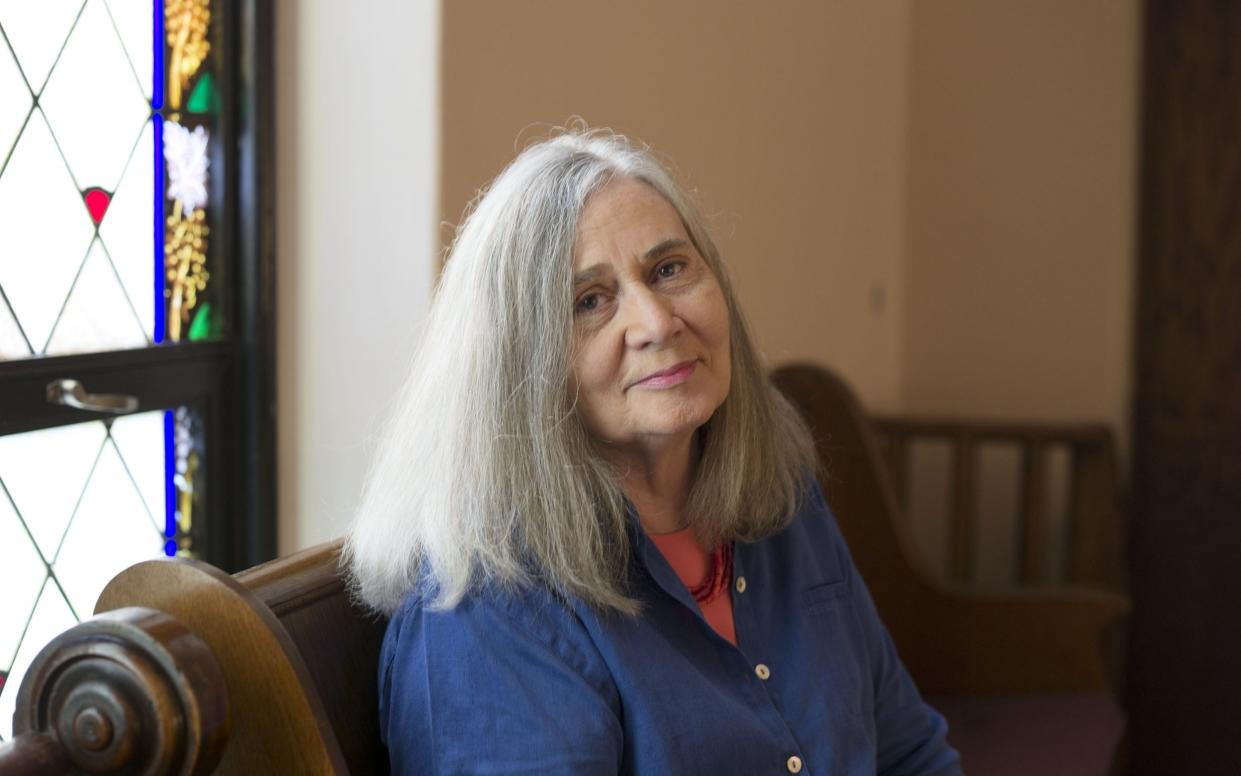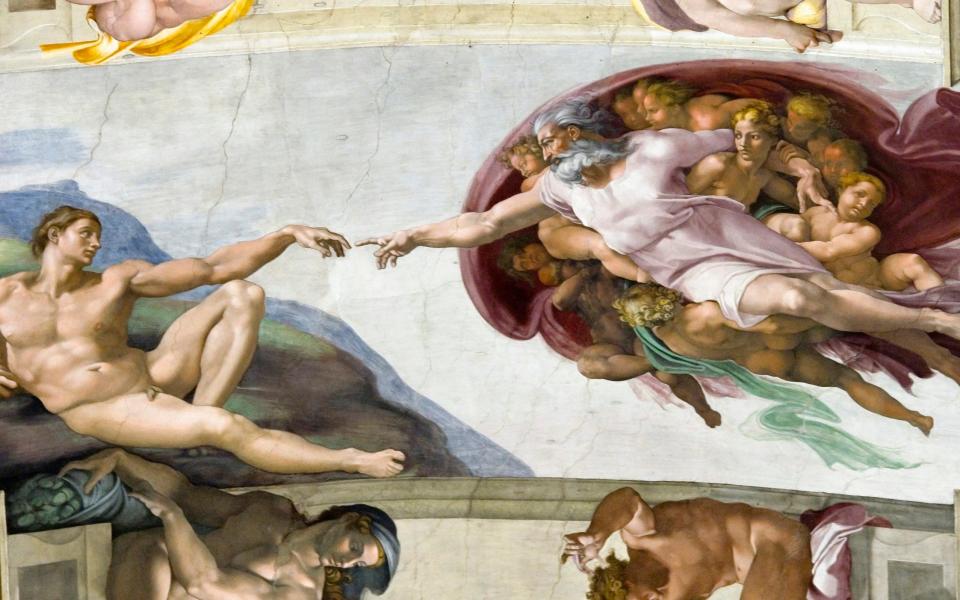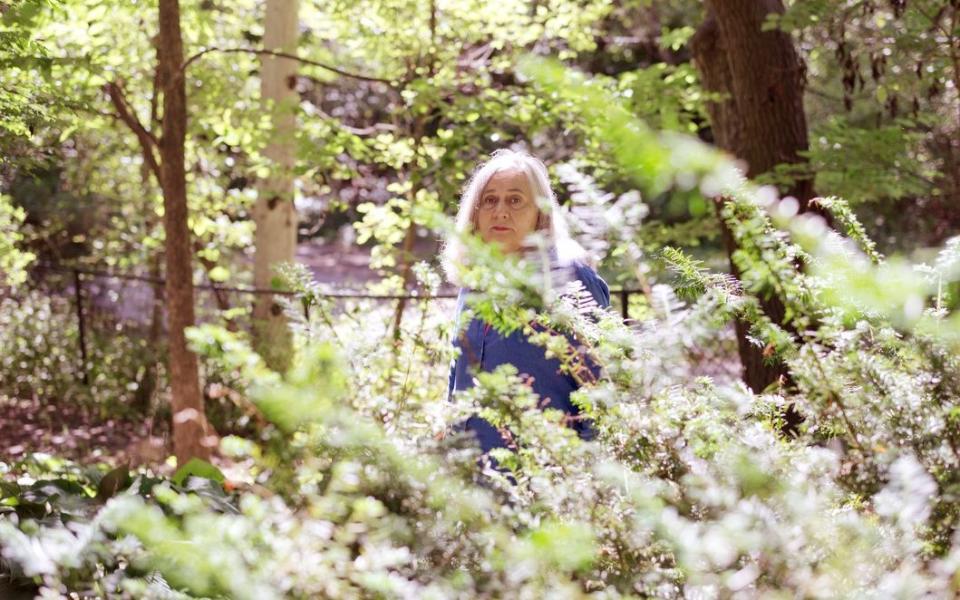‘Trump is a very confused man’: America’s greatest Christian writer on why voters must read Genesis

- Oops!Something went wrong.Please try again later.
- Oops!Something went wrong.Please try again later.
Marilynne Robinson’s writing career has, she admits, been one of going “against the grain”. In our largely secular, sceptical age, her novels address the kinds of questions – about religion, the goodness of God, mercy – that are widely considered irrelevant.
“If I had gone to my editor and said, ‘I want to write a novel about a church minister dying in Iowa in 1956’,” she suggests, referring to the plot of 2004’s Gilead, “I think he probably would have said, ‘Dear, maybe you should think about this.’ But I wrote the book first, and he was delighted to receive it.”
Such is the power of Robinson’s prose – which manages to enthrall while conveying deep moral seriousness – and the uplifting dignity of her characters, that her editor no doubt felt the same when presented with the novels that followed. Home (2008), Lila (2014) and Jack (2020), all returned to Gilead’s Midwest American setting, each one homing in on a different character. Her books have sold millions of copies and won major prizes on both sides of the Atlantic; Robinson’s name is now a fixture on the list of likely contenders for the Nobel Prize in Literature.
A mother of two grown-up sons – she divorced her husband, Fred, a fellow academic, in 1989 – Robinson is unrepentant about doing things on her own terms, but not because she likes to be controversial. It is simply how she is wired.
“There is always an emerging consensus that you know how to join,” she reflects, talking via Zoom from her handsome, book-lined, big-windowed drawing room in upstate New York. “My impulse is always not to join, to head in the other direction, to the extent that it is reasonable and profitable intellectually. What I want to do with my life is what I want to do with my life. I’m hedonistic in my own way.”

At 80, Robinson may be single-minded and, by her own admission, “reclusive”, but she is also warm, funny and good company. She leans forward as she talks, her long grey hair worn youthfully loose, and peppers her remarks with wry laughter, often at her own expense.
She leaves a pause after each of my questions to gather her thoughts before answering, and ends many of her sentences with an encouraging “you know”, as if gently to reassure me that I am keeping up. It is obvious why she was such a beloved teacher for 25 years at the University of Iowa, as an instructor on its celebrated Writers’ Workshop.
America is a society where politicians of Left and Right still talk openly about religion, so her success there is arguably more understandable than here, where Tony Blair chose while Prime Minister not to “do God” for fear of putting off the voters. But, Robinson says, “I don’t think the difference between Britain and United States is perhaps as great as it has been historically, as far as this is concerned.”
In both countries, she believes, there is what she refers to as “an almost clandestine, but nevertheless passionately held religious persuasion. I am not talking about crazy religion. I am talking about the kind that one could recognise as a legitimate heir of the better moments of religion, historically.”

If church attendance is down, Robinson argues, that may have less to do with a collective loss of faith than with the failure of “the institutional churches”, to some of which “perhaps collapse is the healthiest thing that could happen”. She still considers herself a church-goer. (“It is good to sit among other people and realise your mortality,” she says. “It’s not an opportunity that presents itself often.”) Although the combination of a recent house move and troublesome knees – “knees tell you many things about the transience of things” – means that she now tends to join online. Presbyterian by upbringing, she has been a Congregationalist in adult life, like Gilead’s minister, John Ames, but the good God she writes about is broader than any denominational tag.
Retired from academia since 2016, Robinson is, she says tantalisingly, “thinking about” writing another novel. “But I have reading to do, historical reading, before I feel I am able to do that.” In the meantime, her extended essay on the first book of the Bible, Reading Genesis, comes out this month.
Among the best-known of biblical texts – encompassing the stories of Eden and Creation, of Noah’s Ark and the Flood, Abraham’s covenant with God and of Joseph being sold into slavery in Egypt – Genesis is of equal importance in Judaism, Christianity and Islam. “It couldn’t be more primary,” says Robinson. “If you treat it as a sacred text, it is God’s self-introduction.”
For some fundamentalist Christians, it is fact. For non-believers, it is pure fiction. For Robinson, it is something in between – “a particular sort of truth.” Science doesn’t have all the answers, she adds, “though I utterly love and admire it.”

What’s more, Genesis has been, to her mind, consistently misrepresented. “One of the important things for me to emphasise is that God is not punitive. He says, ‘Thou shalt not’, and people do it anyway, and he really doesn’t bring down the hammer.”
But isn’t the Old Testament God also at times vengeful? “Those readings of him as vengeful are very often associated with bad translation, like the fact that the word is not ‘vengeance’, it is ‘judgement’.”
Genesis is also, for her, timeless in its relevance, and that includes for the choice that the United States faces in this year’s presidential election, where the battle will be particularly bitter in small-town Middle-Western America (as she calls it), the setting for her novels. Donald Trump, she says, “is a very confused man. One thing you have to say about him is that he is not like other people. He is so bizarre. Everything that eddies around him is bizarre. He sets off an atmosphere that you would never have suspected was there.”
And, as a result, there are among his most loyal supporters “people who claim to be Christians who are happy saying, ‘we have a thug on our side’. I would never have imagined that this type of thinking would develop among the tall-steeple, white-collar Middle Westerners.” She pauses. “God in heaven, as they say.”
In a recent interview, she described Joe Biden, a mass-going Catholic, as “a gift of God”. She shifts uneasily on the sofa when I mention it. “I am very glad for the existence of Joe Biden but, with that remark, people heard it and put it into the context of fundamentalism. It’s the kind of thing people say about Trump, to my horror. So I feel complicated about it.”

She is increasingly worried that the United States is dividing into two camps. “Here we are in America, put together from a million pieces, and such a jigsaw puzzle, and we now agree too much – we have split in half, with people agreeing too much on one side and people agreeing too much on the other.”
The fault lies, she says, with both parties. “It all relies on a worldview that excludes necessary information. It is a nightmare: here is this brimming energy across the borders of Europe, and people act like they just don’t want to see that movie.”
Robinson has been close to the Obamas since the former president awarded her the National Humanities Medal in 2012, saying her books had “changed” him. Might Michelle Obama make a better Democratic candidate? “I think she probably never wants to be president. Not only that, but inter-familial power groups are not healthy for democracy.” That then leaves us with the question mark over the octogenarian Biden’s senescence. She laughs. “I’m his age. People pass away but they do it at every age after birth.”
But Biden muddles his words in public. “I do, too. Don’t you? It’s weighing one thing against another. In the first place, Trump is almost as old as Biden, and in the second, Biden is sane and Trump is very arguably not sane. That, for me, is a big difference.”
Reading Genesis by Marilynne Robinson (Virago, £25) will be published on March 14

